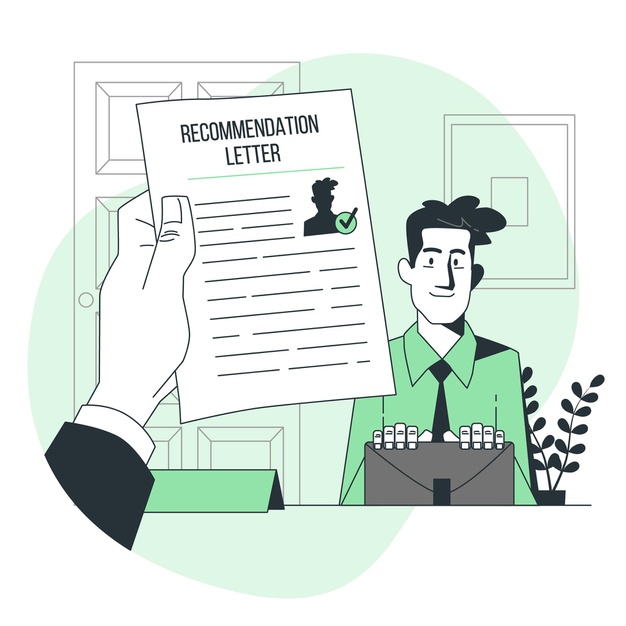
How to get recommendation letters in STEM
Obtaining recommendation letters is an important part of your academic trajectory. They are always necessary for each new step. Want to apply for graduate school? Please submit some recommendation letters. Applying to fellowships? Please attach those reference letters via owl. Applying for postdocs? Send a bag of letters through the chimney. All jokes aside, it is important to be strategic about asking for these little buggers. But, don’t worry! We will let you know of all of our recommendation letter secrets!
#1: How to select your recommender
The very first step on the academic ladder is applying for graduate school. As a graduate student in STEM, your primary responsibility will be to conduct research of some kind. Therefore, the first recommenders to consider are those who can speak to your potential success in science research. As the application process for graduate school becomes more and more competitive, many students engage in research as undergraduates, technicians, and postbaccalaurates before applying to graduate school. For those of you who conducted research, asking your research mentor or Principal Investigator for a recommendation would be ideal. They can speak directly to your contributions in the lab and show that you have already engaged in research of some kind.
Pro tip: If you want to get a letter from your PI but your PI does not know you very well, help a graduate student or a postdoc mentor prepare a statement for the PI to work off of.
If you have not conducted research, try to find a recommender who knows you well and can vouch for your work and/or scholarship. Many students will ask professors they have taken classes with. Only do this if you are sure the professors know you well enough to write about your personal qualities. There’s no lukewarm letter like the ‘This student got an ‘A’ in my class, but I don’t know anything else’ letter. You can also ask for letters from a professional supervisor at a summer internship or full-time job.
#2 How to ask them to write you a letter
The next step after identifying potential recommenders is to ask them for the letter. The most important thing to remember here is that you need to be a good advocate for yourself. How will you know if they will write you a good letter? It may feel uncomfortable the first time, but you should explicitly ask them just that. Most of the time, they will be honest with you and tell you whether they will have more to speak of than just your grades.
In your first email, identify the program(s) you are applying to, the deadline, and then ask them the million dollar question.
‘‘Would you be willing to write me a strong recommendation letter?’
No one wants to let you down. If people feel like they don’t know you well enough to write a good letter for you, they will let you know. Just make sure to explicitly ask with a question like the one above. If they are a no-go, you can move straight on to the next person in your list.
If your recommender agrees to write you a letter, then send a follow-up email thanking them. In this email, you should ask if there are any other materials you can provide for them to write a good letter for you. Recommendation letter writers love whatever reduces their workload. If you can, provide them with your application statements and your CV/resume. Anything that will give them a more flushed out picture of you as an applicant. If you want them to comment on your extracurriculars that they don’t know about, provide them with a paragraph or two about what you have done in those extracurriculars.
If you think there is something you would like them to mention, definitely ask them to include it. These recommenders also want to be your best advocate, so any help from you to make their recommendation stronger is extremely helpful. I have literally emailed recommenders something along these lines: ‘Could you please comment on my science communication abilities during my presentations at lab meeting’.
#3: Letter Logistics
Because a lot of recommendation letter writers are extremely busy people, you have to give them enough time to actually prepare the document. It is good practice to ask for a letter at least one month before the first deadline.
Pro tip: This is a little sneaky, but I always fudge the application deadline to be a couple of days earlier than the actual deadline. That way, I can be sure that all of my recommenders will get their letters in on time.
Some letter writers prefer lots of reminders. I would explicitly ask them by email if they want to be reminded, and at what frequency. At the very least, I would remind them a week before the deadline, a day before the deadline, and on the deadline day if they have not submitted the letter.
#4 Letter Content
Letters can cover topics like your work ethic, ability to work on a team, creative thinking, intellectual curiosity, resilience, and more. Ultimately, these recommendation letters should show the graduate program admissions committee that you will be a successful graduate student. In practice, what the graduate school is doing is taking a bet on you. What they want is to invest in a graduate student that shows enough motivation for research that they will probably not drop out. For this reason, having prior research experience is very important before applying to graduate school in STEM because it shows that you’ve had a taste of research and you have not been put off.
If you are in college right now and are considering graduate school, we recommend that you try fit in at least one semester or summer of research before you apply (or at least any course that has some semblance of research).
#5: Share the love
The last thing to do after they submitted their recommendation letter is to show your gratitude! After their submission, send a follow-up email to thank them for their help. If you want, you can keep them updated on your interview process.
I have also given small gifts, like a small box of chocolate, and a handwritten card to my recommenders to show my appreciation. The odds are that you may have to ask them for another recommendation in the future so maintaining a good rapport with your recommenders is very important.
Hopefully these tips have helped you! Asking for recommendations can be very scary but it can also be a great learning opportunity! Every new step will require recommendations in some form or another, so it is important to develop good habits as soon as possible!
__________________________________________________________________________________________________________________________________________
As always, you can reach out to us @phdxlife on Twitter if you have specific questions/suggestions about this topic or others in our posts.
